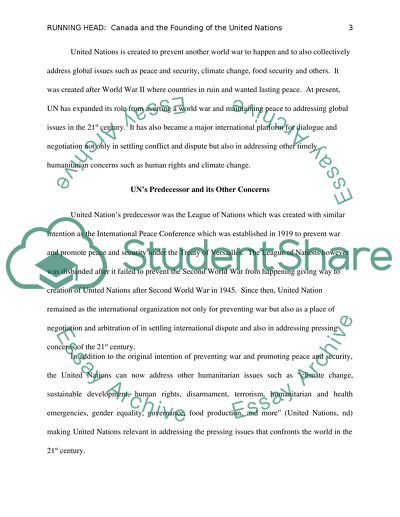Cite this document
(“Canada and the Founding of The United Nation Essay”, n.d.)
Canada and the Founding of The United Nation Essay. Retrieved from https://studentshare.org/social-science/1697914-canada-and-the-founding-of-the-united-nation
Canada and the Founding of The United Nation Essay. Retrieved from https://studentshare.org/social-science/1697914-canada-and-the-founding-of-the-united-nation
(Canada and the Founding of The United Nation Essay)
Canada and the Founding of The United Nation Essay. https://studentshare.org/social-science/1697914-canada-and-the-founding-of-the-united-nation.
Canada and the Founding of The United Nation Essay. https://studentshare.org/social-science/1697914-canada-and-the-founding-of-the-united-nation.
“Canada and the Founding of The United Nation Essay”, n.d. https://studentshare.org/social-science/1697914-canada-and-the-founding-of-the-united-nation.


